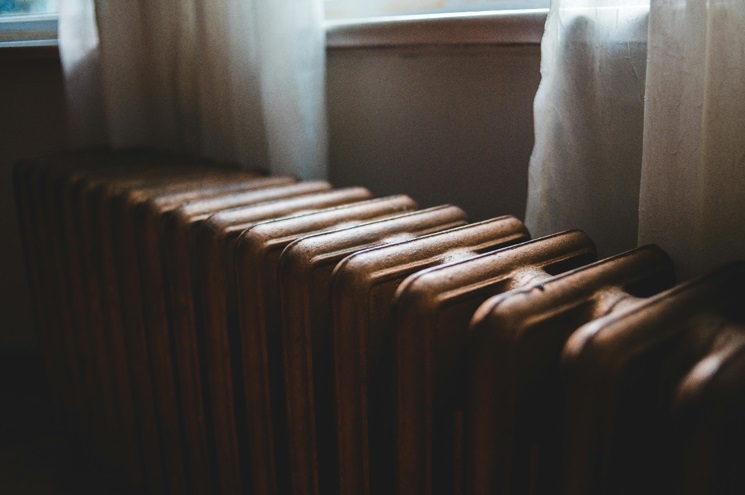
Is your heating system ready to handle the cold months? Many homeowners wait until winter to think about their heating system, only to discover problems when they need warmth the most. Regular maintenance keeps your heating system running efficiently and helps prevent costly repairs. If you live in a place like Egg Harbor Township, NJ, where winters can be cold, maintaining your furnace and heating system is even more important. Neglecting upkeep can lead to higher energy bills and unexpected breakdowns.
In this blog, we will share important maintenance steps to help you keep your heating system in great shape all year long.
Inspect and Clean Vents and Ducts
Your heating system relies on a network of ducts and vents to distribute warm air throughout your home. If these become clogged with dust and debris, your system will have to work harder to maintain a comfortable temperature. This can lead to uneven heating, with some rooms feeling warmer than others. Checking your vents and ducts for blockages and buildup is an important step in keeping your system running efficiently.
If you notice weak airflow or excessive dust in your home, it may be time for a professional duct cleaning. This is especially important for homes in Egg Harbor Township, where seasonal weather changes can bring in more dust and allergens. Scheduling routine maintenance, including duct cleaning, can prevent major issues and improve overall air circulation. If you suspect leaks in your ductwork, sealing them can also enhance efficiency and reduce heating costs. For major concerns, seeking furnace repair in Egg Harbor Township, NJ, can prevent bigger problems down the line.
Change the Air Filter Regularly
One of the simplest but most important tasks is changing the air filter. A clogged filter makes your heating system work harder, reducing efficiency and increasing energy costs. When airflow is restricted, your system may struggle to heat your home properly. This can also lead to overheating, which can damage internal parts over time. Most filters should be replaced every one to three months, depending on usage and the type of filter you have.
A clean air filter improves indoor air quality by trapping dust, pollen, and other airborne particles. If you or your family suffer from allergies, a dirty filter can make symptoms worse. Checking and replacing your filter regularly helps your system run smoothly and improves the air you breathe. If you have pets or live in an area with high dust levels, you may need to change the filter more frequently to maintain efficiency.
Check the Thermostat Settings
A properly functioning thermostat helps your heating system work efficiently. If your home feels too warm or too cold despite adjustments, your thermostat may not be working correctly. Older thermostats can lose accuracy, causing your heating system to cycle on and off unnecessarily. This can waste energy and increase your utility bills. Testing your thermostat settings regularly ensures that it responds correctly to temperature adjustments.
If you have an older model, upgrading to a programmable or smart thermostat can help improve efficiency. These devices allow you to set schedules that adjust temperatures based on when you’re home or away. Smart thermostats can even learn your habits and make automatic adjustments to save energy. Keeping your thermostat in good working condition helps your heating system run more smoothly and keeps your home at a comfortable temperature.
Keep the Area Around the Furnace Clear
Your furnace needs proper airflow to function efficiently. Storing items too close to it can block ventilation and create a fire hazard. Many people use their basement or utility room for storage, but placing boxes or household items near the furnace can reduce performance. It’s best to keep at least three feet of clear space around the unit.
In addition to clearing space, regularly checking for dust and debris buildup around the furnace is essential. Over time, dirt and lint can accumulate, leading to overheating or other operational issues. Vacuuming around the base of the unit and keeping the surrounding area clean helps prevent problems. A well-ventilated furnace runs more efficiently and reduces the risk of unexpected malfunctions.
Listen for Unusual Noises
Heating systems make some noise when running, but strange sounds can signal a problem. If you hear banging, rattling, or squealing, there may be loose or damaged components. Ignoring these sounds can lead to more significant issues, requiring costly repairs or replacements. Paying attention to these warning signs allows you to address minor issues before they worsen.
Loud noises can come from a variety of sources, including a loose belt, a clogged burner, or failing motor bearings. If your system makes unusual sounds, turning it off and calling a professional is a good idea. Catching problems early can prevent a complete system failure and keep your home warm throughout the winter months.
Test Carbon Monoxide Detectors
If you have a gas-powered heating system, carbon monoxide leaks are a serious concern. This odorless gas can be dangerous if undetected. Installing carbon monoxide detectors near sleeping areas and around the furnace can help protect your family. Checking the batteries and testing the detectors regularly ensures they are working properly.
If your detector goes off, leave your home immediately and call emergency services. A professional technician can inspect your heating system to determine if there is a leak. Preventive maintenance, including checking for cracks in the heat exchanger and ensuring proper ventilation, can help reduce the risk of carbon monoxide poisoning. Keeping detectors in working order is an important step in home safety.
In conclusion, maintaining your heating system is essential for efficiency, safety, and long-term performance. Simple tasks like changing air filters, checking vents, and scheduling professional inspections can prevent costly repairs. By following these essential steps, you can keep your heating system in great shape and enjoy a warm and comfortable home throughout the colder months. Taking care of your heating system today will help prevent issues and save you money in the long run.













